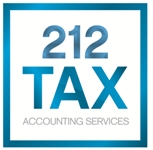Understanding the ins and outs of the ever- complex tax code is never an easy thing. At Armel Tax, we are prepared to help you answer any questions you might have to make that process a little easier. Our goal with this blog is to provide a plain English resource for understanding some of these issues.
This month, we wanted to answer some questions and provide some basic information regarding 1031 Tax Exchanges. While we always recommendconsulting with a qualified tax professional before entering into any complex transaction, hopefully this information will answer some of your basic questions.
What is a 1031 Tax Exchange?
Section 1031 of the Internal Revenue Code allows for the delay of recognition of capital gains following the sale of certain types of property. This means that under certain circumstances, you may defer the payment of capital gains taxes. There are specific rules and regulations under which a 1031 exchange may occur.
Why should I consider a 1031 exchange?
If you are able to sell a real estate investment for a gain and want to keep your funds in real estate to continue to realize positive cash flow and/or for other reasons, then a 1031 exchange is for you. This is because you are able to grow the value of your investment without paying any capital gains taxes on the increased amount.
What are the basic rules?
Qualified Use Property
The relinquished (sold) property must have been used as a rental, investment, or business property.
Like Kind Property
The property sold and property purchased properties must be “like kind” in order to qualify for a 1031 exchange. There is some misleading information on the internet that leads some people to believe that if they sell a condo, they have to replace it with a condo. That is not true. Any real property meets the “like kind” standard as long as it is exchanged for more real property. The most important thing is that both properties must have been acquired for investment purposes.
Tax Paying Entity
The tax law requires that the replacement property be purchased by the same tax-paying entity that sold the original property. There are some exceptions to this rule. If you want more information on possible exceptions to the tax-paying entity rule please contact our office for a free consultation.
Structure Requirement
You must ensure that the transaction is structured as a 1031 exchange. This treats both deals as one transaction rather than a sale followed by a separate purchase. As an experienced tax accountant in New York City, Armel Tax is qualified to walk you through this step correctly.
These are the basic rules of executing a 1031 Tax Exchange. There are, of course, more rules and regulations than we are not able to list here. Armel Tax is ready to help you navigate this complex transaction. We also have a list of qualified 1031 intermediaries, which must hold onto the funds between these transactions.. Contact us today!
Request a Consultation
We are able to work with your unique schedule including after-hour appointments, most weeknights, and weekends.
Call to action
Build Growth Opportunities with Extensive Business Financial Services
We serve clients in a range of industries, including hospitality, nightlife, real estate, legal, and medical.


